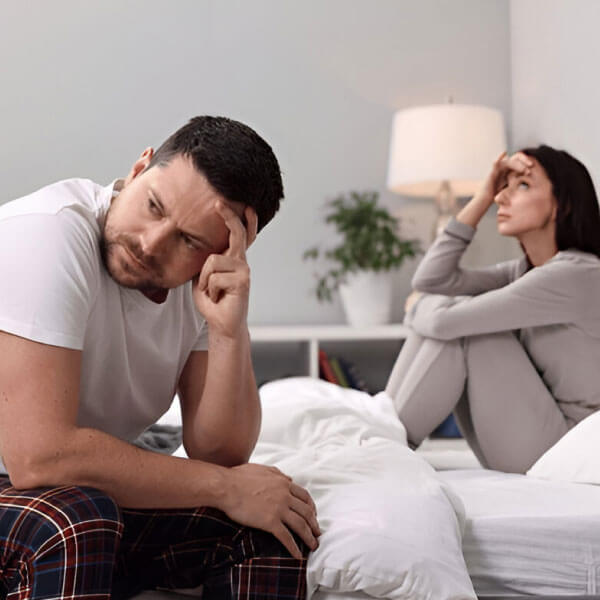
Sexual dysfunction means having trouble with desire, arousal, pain, or orgasm. It can feel confusing or frustrating—but you’re not alone. Visit our DOXXES store on Westheimer/Dairy Ashford to explore supportive products and expert help that can improve your experience.
What Is Sexual Dysfunction?
Sexual dysfunction is when problems with sexual desire, arousal, or climax keep happening. Doctors often group it into types like:
- Surface-level pain
- Deep pelvic pain
- Reactions caused by touch or certain settings
Why Does Sexual Dysfunction Happen?
Emotional or mental causes:
- Stress, anxiety, or low mood
- Grief, trauma, or past hurt
- Poor communication or relationship issues
Physical causes:
- Infections or swelling
- Hormonal changes like low testosterone or menopause
- Muscle weakness or pelvic floor problems
Often, both body and mind contribute. That’s why a full check-up helps find the best care.
Examples and Steps to Identify Triggers
Real examples include:
- Pain during sex
- Low interest in intimacy
- Trouble getting or staying aroused
- Difficulty reaching orgasm
Ways to find triggers:
- Keep a journal—note time, setting, and how you feel
- Compare symptoms on high-stress vs. calm days
- Try using lube or changing positions to reduce discomfort
Who Is Affected and Gender Differences
Sexual dysfunction can affect anyone—men, women, or non-binary individuals. It often impacts self-esteem and relationships.
- Men may face delayed ejaculation or trouble getting erections
- Women often report low desire, dryness, or pain
Everyone deserves support, and open communication helps both partners feel understood.
How a Sex Therapist Can Help
A sex therapist can:
- Talk with you about your history and any pain you’ve had during sex
- Look for signs of anxiety, depression, or stress
- Create a care plan that fits your needs
Ways to Treat and Cope with Sexual Dysfunction
- Counseling or Couples Therapy – Work on trust and communication
- Anxiety Support – Manage worry linked to sexual performance
- Nutrition Supplements – Some herbs and vitamins may help libido and energy
- Body-Based Therapies – Mindfulness, massage, or acupuncture to ease tension
- Support Groups – Connect with others going through the same experience

How Doxxes.love Can Help
At Doxxes.love, we offer:
- Water-based lubricants to reduce dryness and discomfort
- Pelvic floor trainers to boost strength and control
- Soft vibrators to increase arousal gently
- Prostate massagers for added pleasure and awareness
Each item comes with easy-to-follow instructions. These tools work best when paired with support from a qualified professional.
Talking About Sexual Dysfunction with Others
- Be open: “I feel nervous when things don’t go as expected.”
- Use “I” statements to express how you feel
- Choose a calm, private setting for the talk
- Learn together by reading trusted articles or guides
- Ask for help early if the issue starts to cause tension
Visit Our DOXXES Store on Westheimer/Dairy Ashford
Come to our Westheimer/Dairy Ashford store for a private, welcoming experience. Our helpful team can guide you to the right products while respecting your comfort and privacy.
Conclusion
Sexual dysfunction is common—and treatable. With good communication, proper tools, and professional help, you can improve your confidence and enjoy a healthier sex life. Visit DOXXES today to take the next step toward feeling better in your body and your relationships.
FAQs
- What is sexual dysfunction?
Sexual dysfunction is a repeated problem with desire, arousal, orgasm, or pain during intimacy. It can affect your enjoyment and confidence. - What causes sexual dysfunction?
It may result from emotional factors like anxiety, past trauma, or relationship stress, and physical factors like infections, hormone shifts, or muscle weakness. - Can sexual dysfunction affect anyone?
Yes. It can impact men, women, and non-binary individuals at any age. The effects vary but often include stress, lowered self-esteem, and intimacy challenges. - What are common signs of sexual dysfunction?
Signs include low libido, difficulty getting or staying aroused, pain during sex, and trouble reaching orgasm. - How can I identify what triggers my symptoms?
Keep a journal tracking when symptoms occur, how you feel emotionally, and what helps or worsens the experience (e.g., stress, certain positions, dryness). - How does a sex therapist help with sexual dysfunction?
A therapist can explore your history, assess mental health factors, and offer personalized techniques to improve communication, comfort, and sexual satisfaction. - What are some treatment options?
Options include therapy, pelvic floor exercises, mindfulness techniques, supportive tools, medications, or natural supplements for energy and arousal. - How can DOXXES products support sexual health?
DOXXES offers water-based lubricants, pelvic floor trainers, gentle vibrators, and prostate massagers—all designed to reduce pain, improve control, and boost pleasure. - How do I talk to my partner about this?
Use “I” statements like “I feel anxious when sex is uncomfortable.” Talk privately and calmly, and explore solutions or educational resources together. - Where can I find products that may help?
Visit the DOXXES store on Westheimer/Dairy Ashford. Our friendly team offers discreet support and guidance to help you find what’s right for your body and needs.
